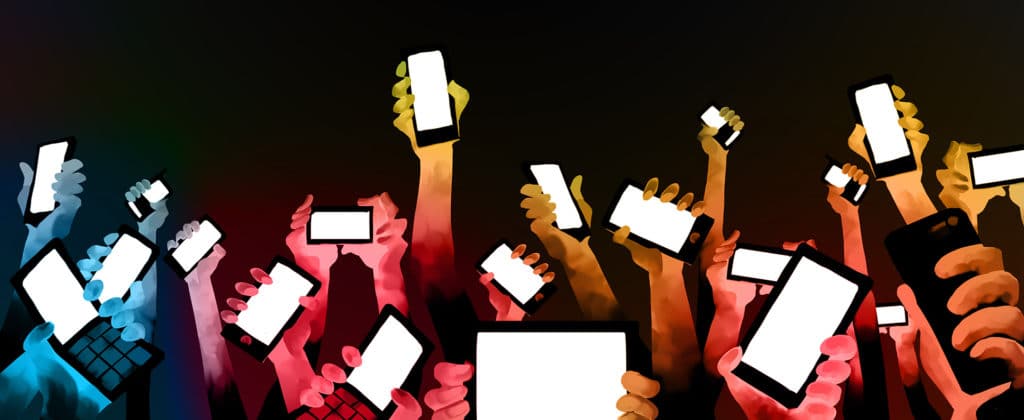Citizens across the globe, particularly those in emerging or threatened democracies, are not only worried about the long queues and frustrations that await them on election day. They also need a circumvention plan, in case their governments decide to intentionally plunge the country into complete or partial digital darkness.
This is currently the case for the people of Togo, who are preparing to go to the polls on Saturday, February 22 — the first presidential election after new term limits were added to the country’s constitution following major protests in 2017. The current administration oversaw internet shutdowns during those protests three years ago, and during previous elections in 2015. In the leadup to Saturday’s vote, there have already been reports that certain websites and social media platforms were inaccessible for a few hours on February 6, 2020.
Any attempts by the government to shut down or throttle the internet during the elections cannot be accepted.
Free, fair, and participatory elections are the cornerstone of every democratic society. An open, secure, and accessible internet allows citizens to actively engage in the election process without any barriers. When the right measures are in place, the internet empowers citizens to participate in campaigns, vet prospective candidates, engage in a national dialogue, find their polling stations, cast their votes, and ensure the transparency and fairness of elections.
Togo should follow the footsteps of its neighbors Ghana, Nigeria, and Senegal. These countries have shown that an open, secure, and accessible internet can foster civic participation during the electioneering processes and beyond, safeguard election results, and promote democracy.
Whether shutdowns happen in Togo, Kazakhstan, India, Venezuela, Malawi, or Mauritania, during a protest, elections, or school exams, they are all the same: they restrict the free flow of information, censor, and stifle dissent, and they never make people safer. They are tools for human rights violations and cost citizens and governments millions of dollars every day. In addition, network disruptions leave citizens in fear as they are unable to monitor their surroundings and communicate with their families, friends, and loved ones.
It is, therefore, the responsibility of the Togolese government to make sure that citizens and residents have access to an open, secure, and reliable internet before, during, and after the election.
Offline space has transitioned online as internet and social media platforms have become part and parcel of citizens’ daily activities. Thus, it is the responsibility of every government to invest in the internet to enable its citizens to benefit from the opportunities it provides rather than clamping down on it. It is imperative for governments and other stakeholders to capitalize on the power of the internet and social media platforms to advance growth and development which in the long run could improve the lives of the citizens.
The global campaign against internet shutdowns
Intergovernmental blocs such as the African Union and the United Nations among other stakeholders continue to appeal to governments to refrain from weaponizing internet shutdowns, which violate human rights and cripple economies. Similarly, the #KeepItOn coalition, representing over 210 civil society organizations from 70 countries, has mobilized to campaign against internet shutdowns globally.
Over the years, our monitoring and documentation of internet shutdowns in countries such as the Democratic Republic of Congo, Benin, Cameroon, and Pakistan — where governments have tampered with access to the internet and social media platforms during elections — has shown that the results of elections impacted by shutdowns are usually marred with irregularities. In order to hold a free, fair, and peaceful election on February 22, 2020, the Togolese government must keep the internet and all social media platforms accessible.
We therefore urge the Togolese government to explore the opportunities the internet provides to make the Togo elections as free and transparent as possible.
Keep watch and share your story
If you are in Togo, there are some simple steps you can take to prepare yourself for potential blocks ahead of the election.
If social media platforms or certain websites are taken offline, you may be able to regain access by using a Virtual Private Network (VPN), which allows you to access the internet as if you are in a different location. (These are also a good idea for increasing personal security, especially when you’re using public WiFi networks.)
Download these services now so you’re ready in case of certain types of blocking:

Download the French version of the image here.
Note: VPNs are only effective if you are still able to access the internet with enough bandwidth to support the service. They will not be able to get around a full network shutdown.
You can also help the global community fighting to prevent internet shutdowns to monitor the situation in Togo, and provide early warnings of a shutdown by using tools from the Open Observatory of Network Interference (OONI) to test your connection and share the results. Here’s how:

Download the French version of the image here.
During this upcoming election in Togo, we encourage you to share information with us about any network disruptions and online censorship you encounter. Your story and any information you share about a shutdown that you experience can help strengthen the effort to end these harmful restrictions to human rights. You can help inform international media outlets and provide evidence for global advocacy against censorship and shutdowns in forums like the United Nations Human Rights Council.
Kindly use this form to share your shutdown story. Don’t hesitate to reach out to us. We are listening.
